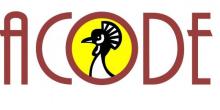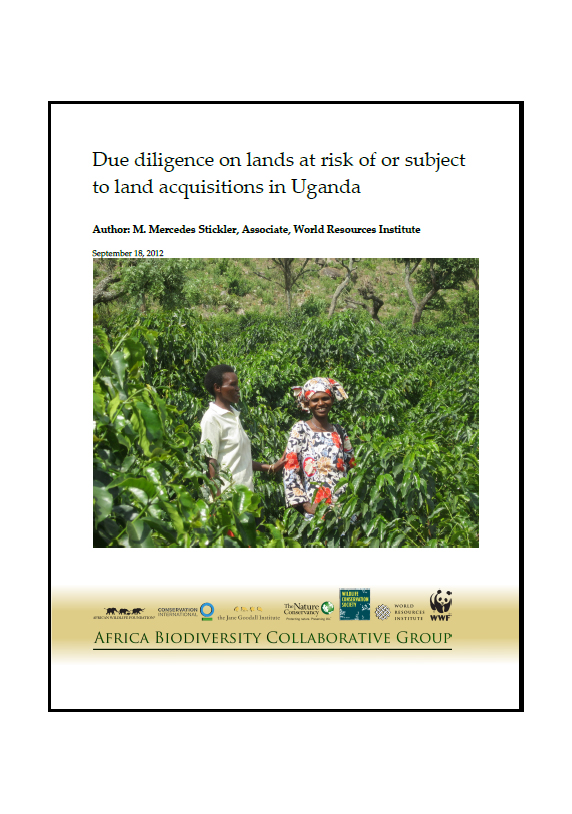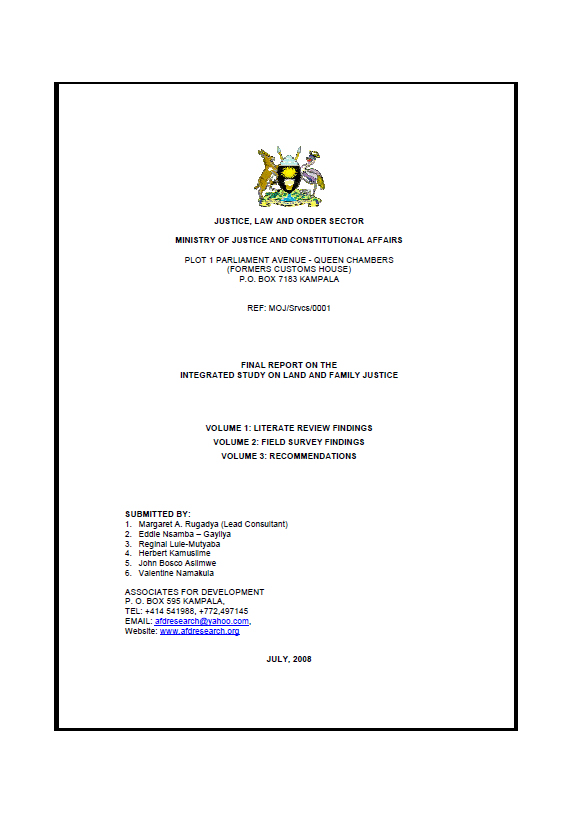
Topics and Regions
Advocates Coalition for Development and Environment (ACODE) is an independent public policy research and advocacy think tank based in Uganda working in East and Southern Africa. ACODE was first registered in 1999 as a Non-governmental organization (NGO). In 2004, the organization was incorporated as a company limited by guarantee and without having a share capital. ACODE is one of the most dynamic and robust regional leaders in cutting-edge public policy research and analysis in a range of areas including governance, trade, environment, and science and technology. ACODE has, for the last four consecutive years, been ranked in the Global Go To Think Tank Index as one of the best think tanks in Uganda and one of the top think tanks in the world. Think Tanks in Africa continue to play a major role in policy development and implementation. The Advocates Coalition for Development and Environment (ACODE) has been ranked 23 out of 92 Top Think Tanks in Sub-Saharan Africa and 29 out of 90 globally with Best Advocacy Campaign in the 2015 Global Go To Think Tank Index Report (TTI), led by the University of Pennsylvania through its Think Tanks and Civil Societies Program (TTCSP).
ACODE is non-partisan and independent and therefore does not align with any political party or political organisation. However, given the direct relationship between development policy and politics, we believe that our work is political and it must stand for certain political causes of a bi-partisan nature. Such causes are legitimate issues of research interest so long as they are defined on the basis of constitutionalism, the rule of law as well as national and regional interests as expressed in the relevant treaties, strategy documents and declarations. ACODE's work is based on three broad programmes areas: Environmental Democracy, Peace and Democracy, and Innovation and Biotechnology Policy. Our core business is to undertake advocacy-driven public policy research and analysis on contemporary and emerging public policy and governance issues that have a significant impact on national development.
Details
Location
Contributions
Displaying 11 - 20 of 52Linking land governance and food security in Africa
Equitable access to land is vital for inclusive economic growth, sustainable development and food security. Although much is known about the topics of land governance and food security, it is not always clear how the two relate to each other, especially in specific country contexts. This reflection paper, based on literature, LANDac country factsheets and three learning trajectories initiated by LANDac in Uganda, Ghana and Ethiopia, brings together findings and outcomes to provide policy recommendations for improved land governance and food security in Africa.
The Dynamics of the Land Question and its Impact on Agricultural Productivity in Mbarara District
In the developed countries less than 20 per cent of the population is engaged in agriculture. The rest is employed in the industrial sector. In the underdeveloped countries less than 10 per cent of the population is employed in the industrial sector and the rest is engaged in agriculture. At once this dictates that, for some time to come, the route to development in the latter countries will depend on agriculture, which also mainly depends on land policy and tenure. The land question is a contradiction in land rights and consequential social, economic and political abuses replicated on it.
Why is customary protection failing to prevent land grabbing?
The protection given to the land rights of women, orphans and any other vulnerable groups in Northern and Eastern Uganda is probably as good as can be found anywhere in the world. Customary land law is based on three main principles. First, everyone is entitled to land, and no-one can ever be denied land rights. A second principle is that all inherited land is family land, never individual property.
Does customary tenure have a role in modern economic development?
Over 80% of all land in Uganda is held under unregistered ‘customary tenure’. This means that it is private property, but the owners need no documents to prove ownership. Their claims to the land, and the boundaries of the land, are locally recognised, and this recognition is given the full protection of State law.
Due diligence on lands at risk of or subject to land acquisitions in Uganda
This research forms part of a larger study on large-scale land acquisition in Uganda. There are three main components of this study: (1) a “risk map” that identifies areas “at risk” for land acquisition due to their high suitability for biofuel crop production; (2) a due diligence report on the existing land uses and users of land identified as “at risk” in the first activity; and (3) an assessment of the land acquisition process, including applicable social and environmental safeguards.
FINAL REPORT ON THE INTEGRATED STUDY ON LAND AND FAMILY JUSTICE
Land is a natural resource that is limited and finite but with immense commercial (as an asset and factor of production), social-cultural, spiritual and aesthetic value. On the other hand, a family particularly in the context of Uganda is a fluid social construct deriving its strict definition from a particular social-cultural context. Land and family conflicts have been shown by various studies 1 to be the most prevalent form of livelihoods disruption to many households’ and individuals.
A study on Land Grabbing cases in Uganda
This report investigates cases of land grabbing in Uganda, focusing in particular on oil palm plantations in Kalangala, Lake Victoria. It assesses the impacts on rural communities and on the local environment, and questions who benefits from these projects.
Land Policy and the Evolving Forms of Land Tenure in Masindi District, Uganda
This paper examines the evolution and the nature of the current forms of land tenure in Masindi District and the extent to which these forms impair or facilitate positive socio-economic changes. Such an examination is vital in light of the fact that there exists no convincing empirically grounded studies on the impact of the official land policies on the relationships between forms of land tenure, social structure and agricultural production.
Karamoja Sub region Uganda
Since Karamoja is richly endowed with gold, marble, iron ore, tungsten, limestone, oil and gas, it has attracted many investors, in particular since the protracted armed conflicts in northern Uganda started fading away. Approximately 1 7,000 km2 or 62% of the total land area of Karamoja has been licensed for mineral exploration and exploitation (Kabiswa, 2014).
TENURE IN MYSTERY
Tenure in Mystery collates information on land under conservation, forestry and mining in the Karamoja region. Whereas significant changes in the status of land tenure took place with the Parliamentary approval for degazettement of approximately 54% of the land area under wildlife conservation in 2002, little else happened to deliver this update to the beneficiary communities in the region. Instead enclaves of information emerged within the elite and political leadership, by means of which personal interests and rewards were being secured and protected.



